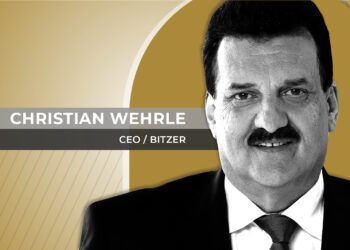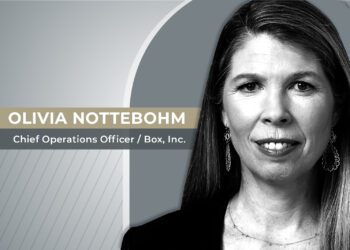Tim Phillips, CEO of Universal Logistics Holdings, leads using tech, strategic planning, and individual talent to build a bigger footprint.
When Tim Phillips took over as CEO of Universal Logistics Holdings in January, he could count on 31 years’ experience within the company in a variety of roles which gave him an ample perspective on the logistics industry from a number of angles. He started out as inventory coordinator before making his way up to president of subsidiaries The Mason & Dixon Lines, a predecessor company to Universal Truckload, and Universal Intermodal Services, and most recently, COO of Universal’s Transportation Group. “I saw a lot of the company from the ground level in the early stages,” Phillips told CEO Magazine in an exclusive interview. “I consider myself a granular type guy that looks at specifics in trying to get into the nuts and bolts of the operation, so when I stepped into the CEO position there were a few things that I thought we could make an immediate and near term difference with.”
Universal Logistics Holdings is a full-service provider of customized transportation and logistics solutions throughout the United States, and in Mexico, Canada and Colombia. Headquartered in Warren, Michigan, the company provides its customers complete supply chain solutions from a broad array of services, including truckload, brokerage, intermodal, dedicated, and value-added services. In 2019, Universal Logistics boasted revenue of $1.51 billion, managed a fleet of over 4,500 tractors, and engaged a workforce of nearly 11,000 associates across its various service lines throughout North America.
Looking forward, Phillips sees two key growth priorities for the company in the near term based on the potential of its core service lines and broadening customer base. “We’re going to take a hard look at organic growth through cross pollination in sales,” he said. “We’re also going to continue to look at further M&A if it makes sense strategically. I also think we can capitalize on customer outsourcing opportunities that will lead itself to further value added growth through utilizing our technology and talent. I would say that roughly 50% of growth will come through organic growth and the other from acquisition opportunities.
“We feel that streamlining the transportation fluency and visibility for our customers with our next generation systems will put us in the position over the next three years to lift the company to $2 billion in topline revenue,” Phillips added. “Furthermore, while our footprint in North America is pretty robust, I think there’s definitely room to fill in some spots and add some density to areas where we might have opportunities to take an additional market leading position.”


New opportunities
Upon being appointed CEO, Phillips formulated a list of key strategies through which Universal Logistics could strengthen its position as a leader in the logistics space. The company made a number of strategic acquisitions in recent years which enabled them to considerably broaden and diversify their customer base and extend their different service offerings to new clients beyond the auto industry where they have traditionally thrived.
“For example, we made six Intermodal acquisitions over the last two years, which expanded our portfolio of blue chip customers,” Phillips explained. “We realized we were doing business with a lot of top tier customers but we weren’t touching them on all the service lines we have within the organization. So one of the first opportunities we identified was looking at the best way to cross-pollinate customers between the different service lines.
“I knew there was a core group of competency, intelligence on the management side, and best-in-class technology,” he elaborated. “So we wanted to take that and further our integration with the auto industry, but also take that knowledge and execution we’ve acquired with some very intricate customers over the last 45 years and start pushing that out to non-automotive opportunities.
“We looked at the book of business, our customer base, and our ability to cross-sell, and I think we’re well positioned to take our value added knowledge and technology and start spanning it across various customers in different industry verticals.”
Cutting edge technology
The logistics industry, like many others, is increasingly being reshaped by technology and this is a major point of focus for Phillips and Universal Logistics as they push forward. As the acquisitions the company has made on the Intermodal side of the business have been integrated, exciting new software is being introduced that will enhance the flow and visibility, which Phillips sees as a huge opportunity. As such, he views the deployment of a new KPI system as an incredibly useful tool to measure Universal Logistics’ performance in terms of both customer satisfaction and against its competitors in the industry, information that is subsequently shared with service line leaders to identify further advantages the company could potentially hold.
“We’re just about reaching the finish line on the initial phases of what we consider a next generation Transportation Management System (TMS),” he highlighted by way of example. “That’s a definite opportunity that I think we’ll be able to capitalize on in the near future. We also begin to use a pretty sophisticated KPI system that we employ to design strategies and plan ahead. When I took on the position I made a great effort to outline enterprise goals and share that with the service line leaders. Even though Universal Logistics Holdings is one company, we still operate in a couple of different service sectors and we have to make sure that we’re getting the most from each service line leader but also take that expertise and share it among service lines.”
“We hold intelligence sessions on how we can move forward as a group utilizing our vast resources and knowledge,” Phillips added. “What areas can we focus on in the next 12-18 months? What do we do from mid-management up to break down walls and collaborate more deeply? We want to have an education process that will flow from mid management up to the executive level so we can look at the business flow in reverse and identify not only how inefficiencies affect administrators and collective services, but also how that group of talented people can see it all coming in from an operational level.”
Setting themselves apart
Tim Phillips views talent, technology, and key partnerships as the things that set Universal Logistics apart from its competitors. He believes the company is loaded with experienced talent that has a passion for a customer-centric culture at its heart. He sees the technology the company has at its disposal as a key competitive advantage. And he believes the partnerships that Universal Logistics has forged with other leading firms are crucial to retaining that edge.
“Everybody needs partners,” Phillips stressed. “We’ve done a lot of heavy lifting internally but we are collaborating with several different partners out there both in terms of equipment and technology. For example, one of the things we had to evaluate was whether to go on our own when the ELD mandate came out or whether we would look at bringing in a partner. We chose to partner with TransFlow and they’ve been very proactive in terms of service updates and fixing things we would need as a corporation and it’s pretty mobile friendly. We have it as a tablet in our trucks and it works well.
“We are also using Pinpoint which is a manufacturing execution system. I mentioned our Acculinc system which is our proprietary system on the value added side doing a lot of complex work from warehouse management to sequencing. On the logistics side, we’re heavily involved with switching operations that are servicing some of the most intricate manufacturing operations in the world and having equipment down at any given time is a really big deal. Our relationship with Autocar Trucks has been outstanding over the past couple of years in that respect.”
A sophisticated supply chain partner
Phillips ultimately views Universal Logistics Holdings as a complete supply chain partner whose goal is to employ people who understand the industry, are passionate about the business and can work in tandem with technology and the company’s partners to provide customers with the customized supply chain solutions they are looking for.
“Through the five service lines we have, we’re promoting 16 plus different types of services for our customers,” he said. “We’re a sophisticated supply chain partner that is customer centric in nature. That’s where it starts. That enables us to provide a premium service along with our technology while closely monitoring safety and controlling our costs with a view to optimizing shareholder value.”












